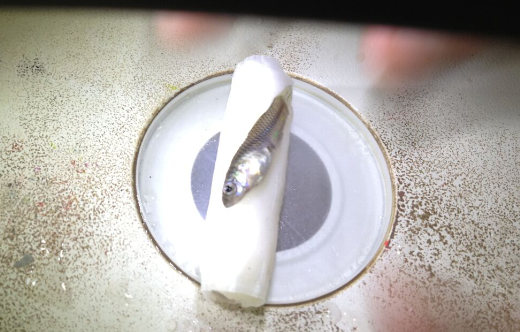Evolution…it’s a real thing!
A few years ago, when I told people I studied evolutionary ecology, I tended to get responses like, “Oh, so you believe we came from monkeys?!” Or they would automatically think of large-scale evolution. Change over thousands, even millions of years.
We, humans, and apes evolved from a common ancestor. We did not come from monkeys. Sharing a common ancestor means that everything on earth evolved from the same tiny microorganism. Yes, we are all related. Even distant cousins, if you will.
Evolution can also occur over very short periods of time. In the case of aphids, myzus persicae, (my undergrad study species), organisms with very short generation times can evolve within a few months!
So, what exactly is evolution?
Evolution is the change in the frequency of alleles within a population over time. It is simply gene distribution over time. “Descent with modification.”
Individuals do not evolve. Populations do. The evolutionary potential of a population is a direct function of the amount of genetic variation within that population.
I initially became very interested in evolutionary ecology during my undergraduate career. I did my thesis project (Research Opportunity Project) with Professor Marc Johnson and Dr. Martin Turcotte at the University of Toronto studying the effects of climate change on the rapid evolution of an agriculturally important pest. Dr. Johnson and Dr. Turcotte served as amazing mentors and teachers to me. I learned so much about biology, life and myself. My experiences working in Dr. Johnson’s EvoEco lab was an extremely pivotal point in my life, which led to other great experiences like working as a field technician in Trinidad studying the adaptive evolution of guppies for The Guppy Project. You can check out my previous post about my time working in Trinidad here!

Guppy under anaesthesia in our lab in Trinidad
There are still so many people who do not believe evolution exists. Without going too deep into evolution and writing an extremely long blog post, here are a few quick facts to give you some perspective (thanks to Crash Course Biology):
- Our human genome is 98.6% identical to a chimpanzee
- The human genome is also 85% identical to that of a mouse
- Approximately 50% of our genes are identical to that of a fruit fly
- Fossils have shown us that whales used to walk. Some modern whales still have the vestigial remnants of a pelvis and hind limb bones
- Lungs evolved from the lobe-finned fish
- Our growing resistance to drugs is also an indicator of evolution

University of California Museum of Paleontology’s Understanding Evolution (http://evolution.berkeley.edu)
Evolution is a magnificent process that shows more about how we are connected than how we are different. It tells stories about the remarkable adaptations species had to develop to deal with challenges.
Happy summer!
MK
@MyLGF


Reblogged this on the rippel efeckt and commented:
What are your thoughts on evolution?
LikeLike
Thank you for sharing this!!! I always find it hard to believe that people can’t get past certain “ways of life” so we can advance.
LikeLike
You’re most welcome! I’m glad you liked it!
LikeLiked by 1 person
Love this!
LikeLiked by 2 people
How did you get into this field? I’m also very interested in biology and evolution itself. I will be graduating with a bachelors in biology, specific field within biology not yet chosen. Any advice? Thanks, Edu
LikeLiked by 1 person
Hi Edu, I graduated with a biology specialization, with a concentration on evolutionary ecology. My advice would be to take more evolution and genetics courses. If your university offers field courses (locally or abroad), you should try to do those as well.
LikeLiked by 1 person
Thanks!
LikeLiked by 1 person
Beautiful so I must follow!
LikeLiked by 1 person